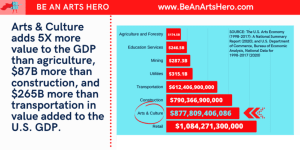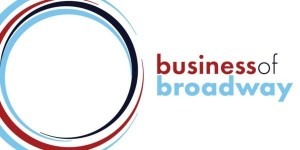The past couple of weeks I’ve been delving deep into the business side of the arts. I’ve been seeking out information because I’ve found that the structures as well as the nuts and bolts of how the arts are funded and produced, are often shrouded in mystery. For the longest time, I have wondered how institutions like The Public Theater produced commercially successful musicals that would go on to Broadway, like Fun Home and Hamilton, while also maintaining community-based programming like their free Shakespeare in the Park. The two seem, at least from a business perspective, to exist in different spheres: commercial for-profit theater and subsidized not-for-profit theater. Yet, The Public boasts itself as one of the nation’s first non-profit theaters founded by visionary Joe Papp. So, how can a non-profit theater organization be producing and transferring new works to Broadway?
There are not exactly classes (that I’ve found anyway) that break all of this down for emerging artistic leaders and producers. There’s also not exactly consensus on the language or legal entities that best fit the arts. I recently spoke with an artistic director of a prominent regional theater company who added CEO to her job title of producing artistic director. When I asked her why, she acknowledged that this is not common practice in the theater industry. It was recommended to her by a colleague as a way to fully acknowledge the labor and importance of her leadership role at the company. She commented that folks outside of the theater industry, especially those who work in the business sector and may donate or sit on the boards of our theatrical institutions, often do not actually understand what an artistic director does. She laughed, saying that there has been more than one person who has commented that her job sounds “fun”. For those of us who do understand the complexity of that role, fun would not be the first word that comes to mind. A producing artistic director effectively combines elements of an executive director, artistic leader, production manager and even director of development. I might say it’s galvanizing and challenging; that the position requires passion, skill, vision, leadership, risk, and compromise. But I wouldn’t call it fun. Would you call a CEO’s job “fun”?

This speaks to a broader devaluing of art-making in this country. Arts and culture in the US account for 4.5% of our economy. That’s $877 billion and 5.1 million jobs. And yet, we have no Department of Arts and Culture. While I am deeply grateful to be building a career in the arts and absolutely consider what I do to be creative, it is also work. It is not always fun but it does bring great purpose and fulfillment to my life. While making art, I am also building a business. Two businesses, in fact: Experimental Bitch and my freelance work as a director. To reduce this labor to a fun time is to fundamentally devalue not just the art itself, but the labor that goes into making it and the business models that sustain it.
That’s not to say we can’t search for new models. In this era of build back better, I wonder how we can push for this in the theater arts industry. As it turns out, The Public has an LLC for their commercial-bound work and their 501(c)3 for everything else, at least that’s what I’ve been told. It does make me wonder why an institution that big needs an LLC? And if they do need it to subsidize their non-profit work what does that mean for the rest of us small potatoes?
 One upside to COVID is that we are seeing a revolution in accessibility. Moving theater online has opened up this work to more diverse audiences. It is also democratizing knowledge, providing access to these secrets of the business. This gives me hope for the future. I’ve learned that there are places like FORGE, the Nonprofit Leadership Center, and the newly founded The Business of Broadway whose goal is to “urgently challenge the ways in which the business has historically operated and consider how we can build a more equitable, inclusive industry model that serves everyone when we can gather again.”
One upside to COVID is that we are seeing a revolution in accessibility. Moving theater online has opened up this work to more diverse audiences. It is also democratizing knowledge, providing access to these secrets of the business. This gives me hope for the future. I’ve learned that there are places like FORGE, the Nonprofit Leadership Center, and the newly founded The Business of Broadway whose goal is to “urgently challenge the ways in which the business has historically operated and consider how we can build a more equitable, inclusive industry model that serves everyone when we can gather again.”
Maybe if we share our knowledge, we will discover new ways to create equity and sustainability in the arts. And maybe even expel the myth that what we do is fun





